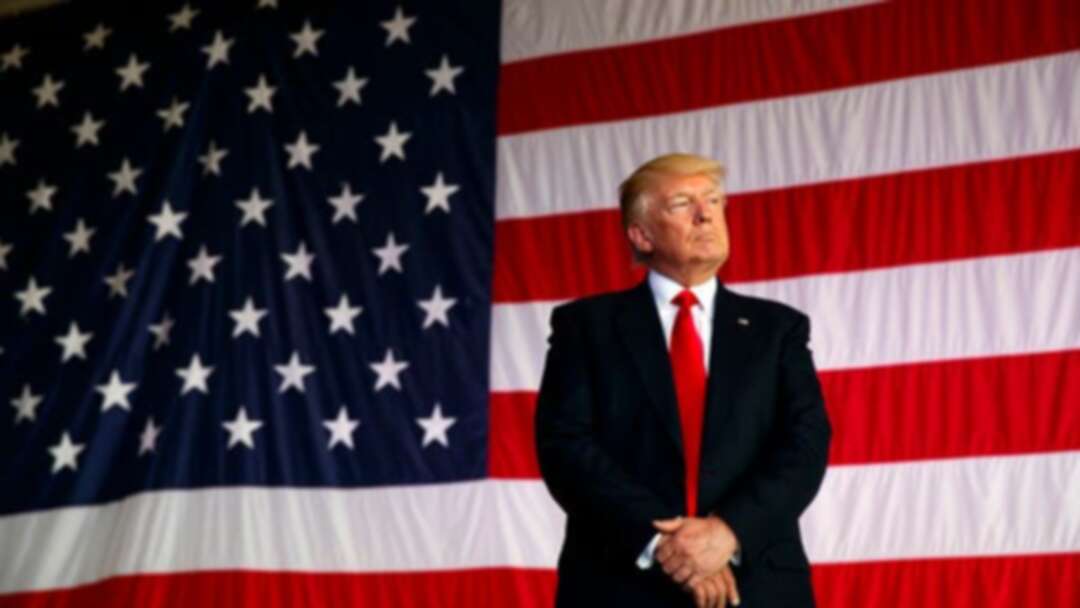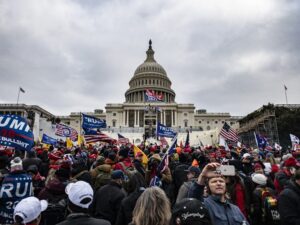-
Explainer: With no self-pardon in hand, could Trump face legal issues as a citizen?

Donald Trump issued a list of pardons during his final hours as US president but did not include himself, his children, or personal lawyer Rudy Giuliani, even though advisers said he had privately debated the extraordinary step of a self-pardon.
Here is how the decision could impact his potential civil and criminal liability as a private citizen.
What may have guided Trump’s decision not to pardon himself and members of his inner circle?
Presidential pardons can only accomplish so much. They can shut down prosecutions by the US Department of Justice, a federal agency. But investigations brought by state-level prosecutors, such as the criminal probe Manhattan District Attorney Cyrus Vance is leading into whether Trump’s businesses engaged in fraud, would still be active.
Vance has not charged anyone with criminal wrongdoing and Trump has said the investigation is politically motivated.
A self-pardon would have only increased calls to prosecute Trump on a state level, said Daniel R. Alonso, a lawyer at the Buckley firm and Vance’s former deputy in the Manhattan District Attorney’s Office.
It could also have fueled efforts to hold Trump accountable through civil lawsuits brought by private litigants, such as family members of people who died during the January 6 storming of the US Capitol by Trump followers, said Jessica Levinson, a professor at Loyola Law School in Los Angeles.
Before the attack, as lawmakers were certifying Democrat Joe Biden’s November 3 election victory, Republican Trump took to a stage near the White House and exhorted a crowd of supporters repeatedly to “fight” - using the word more than 20 times - and “not take it any longer.” He also called on his followers to march on the Capitol, the seat of government.
“With a pardon comes at least the veneer of an admission of guilty,” said Levinson. “In a way, I think pardoning himself and his family is almost like a taunt. It would have said ‘try to come and get me,’ and would have accelerated litigation and investigation.”
There is also considerable doubt among scholars about whether a self-pardon would hold up in court. Many experts said it violates the basic principle that no person should be the judge in his or her own case.
Self-serving pardons might also have drawn the ire of Republicans in the US Senate, who will soon have a trial to determine whether Trump’s January 6 speech was incitement, the charge in his impeachment by the House of Representatives.
The trial could result in Trump being disqualified from future office.
 US President Donald Trump steps off Marine One to board Air Force One before departing Harlingen, Texas on Jan. 12, 2021. (AFP)
US President Donald Trump steps off Marine One to board Air Force One before departing Harlingen, Texas on Jan. 12, 2021. (AFP)The answer is likely yes, though hard to speculate, legal experts said.
Giuliani had dealings with Ukrainians on Trump’s behalf when he was trying to dig up dirt on Biden and his son Hunter Biden. Trump’s efforts led to his first impeachment by the House in December 2019 and the Republican-majority Senate acquitted him in February 2020.
In November 2019, federal prosecutors in New York sought records of payments to Giuliani as part of an active criminal investigation, according to a grand jury subpoena seen by Reuters.
Prosecutors were investigating money laundering, wire fraud, campaign finance violations, making false statements, obstruction of justice, and violations of the Foreign Agents Registration Act, according to the subpoena.
Giuliani has denied any wrongdoing.
The scope and status of the investigation is unclear, and Giuliani has not been charged with wrongdoing. It is also unclear if he knows anything about Trump that would be valuable to prosecutors.
But not receiving a pardon makes it more likely that Giuliani would cooperate with prosecutors and implicate Trump if charged, said Jessica Roth, a professor at the Benjamin N. Cardozo School of Law and a former federal prosecutor.
“Without the possibility of a pardon, the prospect of a conviction and potential prison sentence becomes more real, providing an incentive to cooperate to receive more favorable treatment,” Roth said.
Trump may have decided against pardoning Giuliani because he lost a series of lawsuits brought on behalf of Trump attempting to invalidate Biden as the election winner, Levinson said.
 Pro-Trump supporters storm the U.S. Capitol following a rally with President Donald Trump on January 6, 2021 in Washington, DC. (AFP)
Pro-Trump supporters storm the U.S. Capitol following a rally with President Donald Trump on January 6, 2021 in Washington, DC. (AFP)It’s possible, said former prosecutor Alonso.
Pardons are usually made public. But the Constitution does not require this, and Trump could secretly issue preemptive pardons to family members and associates, or even himself, said
Alonso.
The Presidential Records Act requires documentation of presidential decisions, but the law lacks a mechanism for enforcing it, Alonso said. A secret pardon might only become public if the recipient were eventually charged with a federal crime and invoked the pardon as a defense.
source: Reuters
Image source: AP
Levant
You May Also Like
Popular Posts
Caricature
BENEFIT Sponsors BuildHer...
- April 23, 2025
BENEFIT, the Kingdom’s innovator and leading company in Fintech and electronic financial transactions service, has sponsored the BuildHer CityHack 2025 Hackathon, a two-day event spearheaded by the College of Engineering and Technology at the Royal University for Women (RUW).
Aimed at secondary school students, the event brought together a distinguished group of academic professionals and technology experts to mentor and inspire young participants.
More than 100 high school students from across the Kingdom of Bahrain took part in the hackathon, which featured an intensive programme of training workshops and hands-on sessions. These activities were tailored to enhance participants’ critical thinking, collaborative problem-solving, and team-building capabilities, while also encouraging the development of practical and sustainable solutions to contemporary challenges using modern technological tools.
BENEFIT’s Chief Executive Mr. Abdulwahed AlJanahi, commented: “Our support for this educational hackathon reflects our long-term strategic vision to nurture the talents of emerging national youth and empower the next generation of accomplished female leaders in technology. By fostering creativity and innovation, we aim to contribute meaningfully to Bahrain’s comprehensive development goals and align with the aspirations outlined in the Kingdom’s Vision 2030—an ambition in which BENEFIT plays a central role.”
Professor Riyadh Yousif Hamzah, President of the Royal University for Women, commented: “This initiative reflects our commitment to advancing women in STEM fields. We're cultivating a generation of creative, solution-driven female leaders who will drive national development. Our partnership with BENEFIT exemplifies the powerful synergy between academia and private sector in supporting educational innovation.”
Hanan Abdulla Hasan, Senior Manager, PR & Communication at BENEFIT, said: “We are honoured to collaborate with RUW in supporting this remarkable technology-focused event. It highlights our commitment to social responsibility, and our ongoing efforts to enhance the digital and innovation capabilities of young Bahraini women and foster their ability to harness technological tools in the service of a smarter, more sustainable future.”
For his part, Dr. Humam ElAgha, Acting Dean of the College of Engineering and Technology at the University, said: “BuildHer CityHack 2025 embodies our hands-on approach to education. By tackling real-world problems through creative thinking and sustainable solutions, we're preparing women to thrive in the knowledge economy – a cornerstone of the University's vision.”
opinion
Report
ads
Newsletter
Subscribe to our mailing list to get the new updates!






















